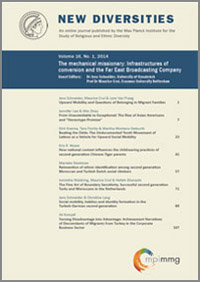OPEN FORUM
Shunning Direct Intervention: Explaining the Exceptional Behaviour of the Portuguese church Hierarchy in Morality Politics
by Madalena Meyer Resende (FCSH-UNL and IPRI-UNL) and Anja Hennig (European University Viadrina)
To cite this article: Meyer Resende, M., & Hennig, A. (2015). OPEN FORUM ARTICLE: Shunning Direct Intervention: Explaining the Exceptional Behaviour of the Portuguese church Hierarchy in Morality Politics. New Diversities, 17(1), 145–160. https://doi.org/10.58002/rjn8-w657
Why are the Catholic churches in most European countries politically active in relevant morality policy issues while the Portuguese hierarchy has remained reserved during mobilizing debates such as abortion and same-sex marriage, whose laws’ recent changes go against Catholic beliefs?
The explanation could be institutional, as the fairly recent Portuguese transition to democracy dramatically changed the role attributed to the church by the former regimes. However, in Spain – whose case is similar to Portugal in matters of timing and political conditions – the hierarchy’s behaviour is different. This begs the question: what elements explain the exceptionality of the Portuguese case? This article shows that the Portuguese case illustrates an element usually not emphasized in the literature: the ideological inclination of the church elites. The article thus concludes that institutional access is a necessary, but not a sufficient, condition for the church to directly intervene in morality policy processes. A church may have access to influence political decision makers but, for ideological reasons, may be unwilling to use it.
Keywords: Portugal, morality policy, Catholic church, Vatican Council II, abortion, gay-marriage, ideology, historical institutionalism
|
